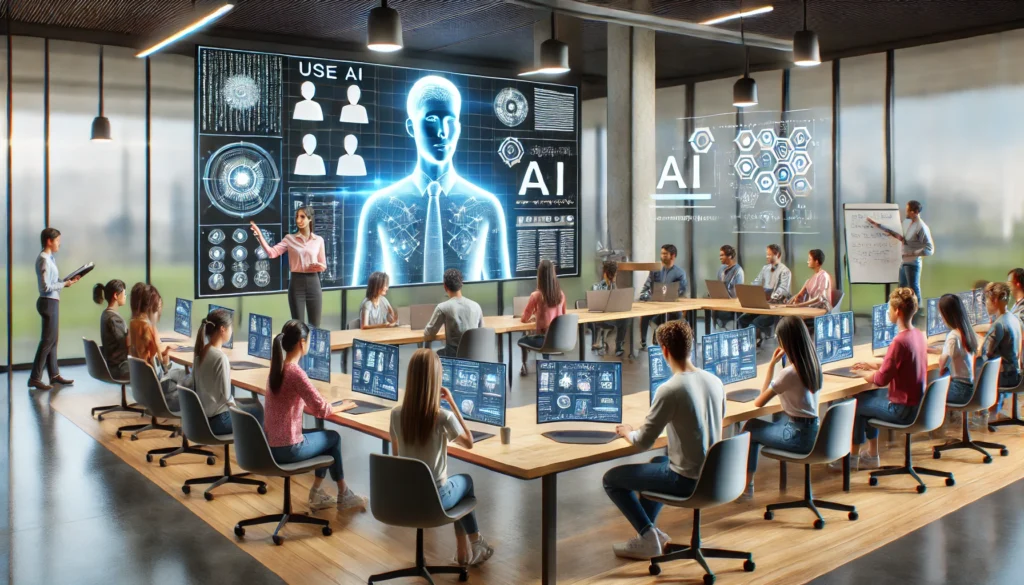- By quade
- 28 June 2024
BPO Employees Face Maximum Risk From AI Development
The development of AI systems has been heralded as a change in how we work. While this can mean some potential benefits, there are also many risks. Perhaps the workers most at risk of these developments are BPO employees.
The entire sector is at maximum risk of replacement by AI according to IT industry body Nasscom’s Chairman Rajesh Nambiar. He explains that AI can automate many of the tasks previously done by BPO workers. However, he insists that while the industry might change, AI will not be able to fully replace BPOs.
Risks to BPO Employees From AI

Rajesh, the Chairman and Managing Director of global technology major Cognizant’s India unit says that the BPO sector as a whole does not have to worry too much. However, the brunt of this impact will be felt by regular employees. Larger organizations like Nasscom will need to adapt but will be able to survive.
“People who work on process-related industry, which we traditionally used to call BPO. Some of that runs the risk of getting replaced with an AI engine pretty quickly,”
-Rajesh Nambiar, Chairman of Nasscom
He explains that the BPM (business process management) industry has risen to about $48.9 billion. To reach that size, the industry has evolved from simple business processes to high-value tasks and many other services.
The BPO industry is part of the much larger Indian tech sector which is worth an estimated worth of $250 billion, making a huge part of the Indian GDP.
Among those at greatest risk as software services from professionals who do not use AI in any way. Because of that, these BPO employees are the most likely to be replaced. Meanwhile, those BPO employees who use AI in some capacity might be in a safer position.
However, white-collar jobs in general are more at risk of being replaced as this technological input aims at boosting productivity and this sector is where most of that happens. As a result, much of the focus has been placed on automation for repetitive tasks.
However, more specialized tasks will also be safe. So Rajesh explains that analysts and statisticians might need to be careful, while air conditioner cleaners and technicians will be safe.
What Can Be Done To Protect BPO Employees?

One major step that the IT tech sector is taking to minimize the effects of AI is upskilling the workforce through training. They will teach tech sector workers to handle AI-related skills and tasks to meet client demands in the future. This makes BPO employees more valuable and less likely to be replaced.
“I think at the end of the day, it is the human ability to leverage and make a difference.”
-Rajesh Nambiar, Chairman of Nasscom
They will also pay close attention to where AI will be deployed to prepare the BPO employees of that specific area. This can include whether AI will be integrated to a specific system or if it is being used to solve a problem.
“This is the first time you are going to have a productivity enhancer, which will actually impact more if you are using your brain a lot more.”
-Rajesh Nambiar, Chairman of Nasscom
Rajesh says that they still have some time to prepare before the full force of this change shows itself. At the moment, AI technology is overhyped and cannot fully replace workers. However, looking 5 to 10 years down the line, the AI of that future could be far more advanced, even more than anything we have access to now.
“If you want to look at a 5-10 year horizon, I believe that the impact of Gen AI and AI in general will have a much more impact than any of us could imagine at this point of time.”
-Rajesh Nambiar, Chairman of Nasscom
Here at geniusOS, we understand both he benefits and risks of AI to BPO employees and we believe it is important to study these developments closely. Articles like this can showcase all the pros and cons that come with using AI and we hope more people will have this conversation. If you want to see what we have to offer, you can reach out to us here.



